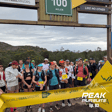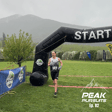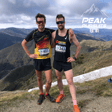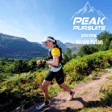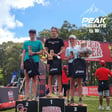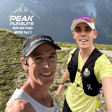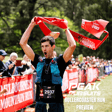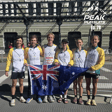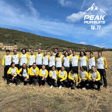
Episode 24: The search for vert, altitude woes, and Backyard Ultra training.
Welcome to Episode 24 of Peak Pursuits, your ultimate podcast for everything trail running in Australia. This week’s episode is hosted by Sim Brick, Jess Jason and Vlad Ixel and takes you through their training/race weeks, answers a listener question about backyard ultras and covers some big results from the week around the country!
Start - 37:20 :-Training/Race Talk
Hear where Jess is up to in her training post Hounslow and how the first trail marathon has affected her. Then hear about Vlad’s search for vert in his training for Asia Pacific Trail Running champs and how he got 6000m in a week in Perth. Finally hear about Sim’s worst race of the year so far at altitude in Mammoth lakes - this is recorded only 2hrs post finishing so you get a very raw recap!
37:20 - 55:45:- Listener Question: Backyard Ultras
The team answers a listener question about backyard ultras and give their training advice/how they think they would train if they were to do one themselves.
55:45 - 1:02:00:- Race Results
We then cover a few Aussie races that went down over the weekend:
Surf Coast Century - https://tomatotiming.racetecresults.com/Results.aspx?CId=16&RId=29707
Yurebilla - https://eventstrategies.racetecresults.com/results.aspx?CId=90&RId=556
Sydney Trail Series - St Ives: https://my.raceresult.com/309783/results#0_F927D2
1:02:00 - End : What’s coming up
Lastly, we do a quick run through of the upcoming trail races around the country and what is coming up for us.
Thanks for tuning in to Peak Pursuits! Connect with us on Instagram @peakpursuits.pod to share your thoughts, questions, and your own trail stories. Until next time, keep hitting the trails and chasing those peak pursuits!
Jess: @jess.jason95
Sim: @theflyingbrick_
Vlad: @vladixel
Music from #Uppbeat (free for Creators!):https://uppbeat.io/t/mood-maze/trendsetter
License code: K08PMQ3RATCE215R

